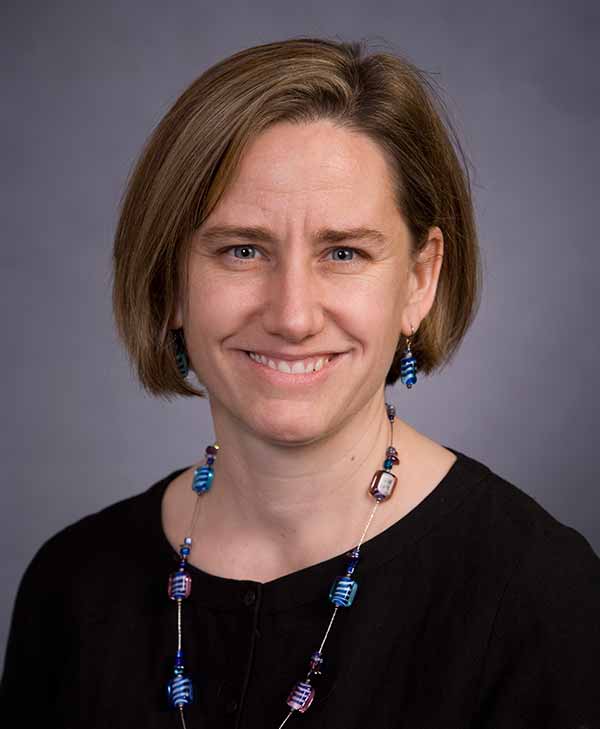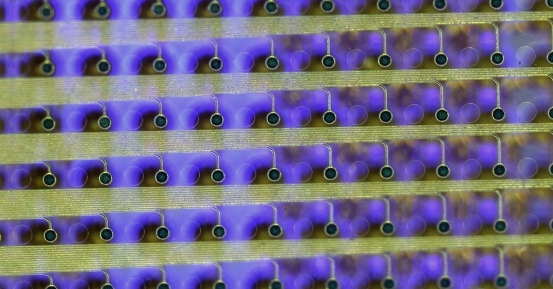
Published Date
Share This:
Making UC San Diego the Best Place It Can Be
Q&A with Kit Pogliano, Chair of the Standing Committee on Service and People Oriented Administrative Culture

Kit Pogliano
Professor of Molecular Biology Kit Pogliano keeps busy with teaching and research focused on cellular dynamics and microbial interactions, in addition to co-directing the new campus-wide Microbiome and Microbial Sciences Initiative. Still, she dedicates extensive time and effort to serving as chair of UC San Diego’s Standing Committee on Service and People Oriented Administrative Culture (SC-SPOC). Why? Because she is passionate about making the campus a better place to work, study and discover.
Why was the Standing Committee on Service and People Oriented Administrative Culture established at UC San Diego?
The Strategic Plan, initiated by Chancellor Khosla in 2013, recognized that in order to achieve our lofty aspirations, we must continue and accelerate administrative efficiencies to support our academic mission and the people who drive it. This committee helps fill this need.
What is unique about this committee?
SC-SPOC engages senior faculty and academic leadership on issues which would be considered a sole responsibility of the business units on most other campuses. This group brings together a network of leadership, faculty, researchers and staff to provide an honest assessment of the campus’ strengths and weaknesses, and to create a system to detect common challenges and opportunities. Our goal is to create solutions that will have the greatest impact.
The committee has implemented a crowdsourcing platform called IdeaWave. How does it work?
IdeaWave is an online innovation tool that fosters cross-campus conversations and collaborations similar to those that emerged during the strategic planning process, but on an even larger scale. Faculty and staff members can share ideas, challenges and best practices, as well as comment and vote on ideas submitted.
What positive results have you see so far from IdeaWave?
We have been impressed by the creative and constructive suggestions from the campus community during our first IdeaWave campaigns, which focused on several different administrative themes. As a result, enhancements, such as streamlined travel processes, have been made throughout campus, and more projects—some long-term—are underway. We are also seeing new connections formed that we hope will provide the foundation for a new campus-wide network of individuals committed to working together to ensure our continued innovation.
You are busy with your research and teaching, so why have you have still chosen to dedicate many hours to SC-SPOC?
I feel fortunate to be a faculty member at UC San Diego. Our young campus rapidly established itself as a world-class institution, building upon the remarkably clear and timeless vision of our founders. I chose to participate in the Standing Committee on Service and People Oriented Administrative Culture as a means to contribute to the campus-wide effort to ensure that we make the very best possible use of our resources. I want to help make UC San Diego the very best place to be, as a student, a staff person, a faculty member, a researcher or a clinician.
What has surprised you during your time as chair of this group?
I have been pleasantly surprised by the willingness of members and advisors of SC-SPOC to dedicate their precious time to the effort; each and every one is a productive scholar and member of our campus leadership team, who has many professional and institutional obligations. Without their enthusiasm and boldness, this effort would never have launched. Without their wisdom and honesty, we would have rapidly found ourselves off course.
How do you envision the SC-SPOC helping to shape UC San Diego future?
The future will bring new challenges, and some, no doubt, will surprise even the most seasoned among us. To prepare for such challenges, we must build an agile culture that is accustomed to fluid, enterprise-wide collaborations. We must enable and empower individuals to contribute to efforts that will ensure the continued success of the institution and allow us to deliver on our public mission.
Share This:
You May Also Like
Stay in the Know
Keep up with all the latest from UC San Diego. Subscribe to the newsletter today.


